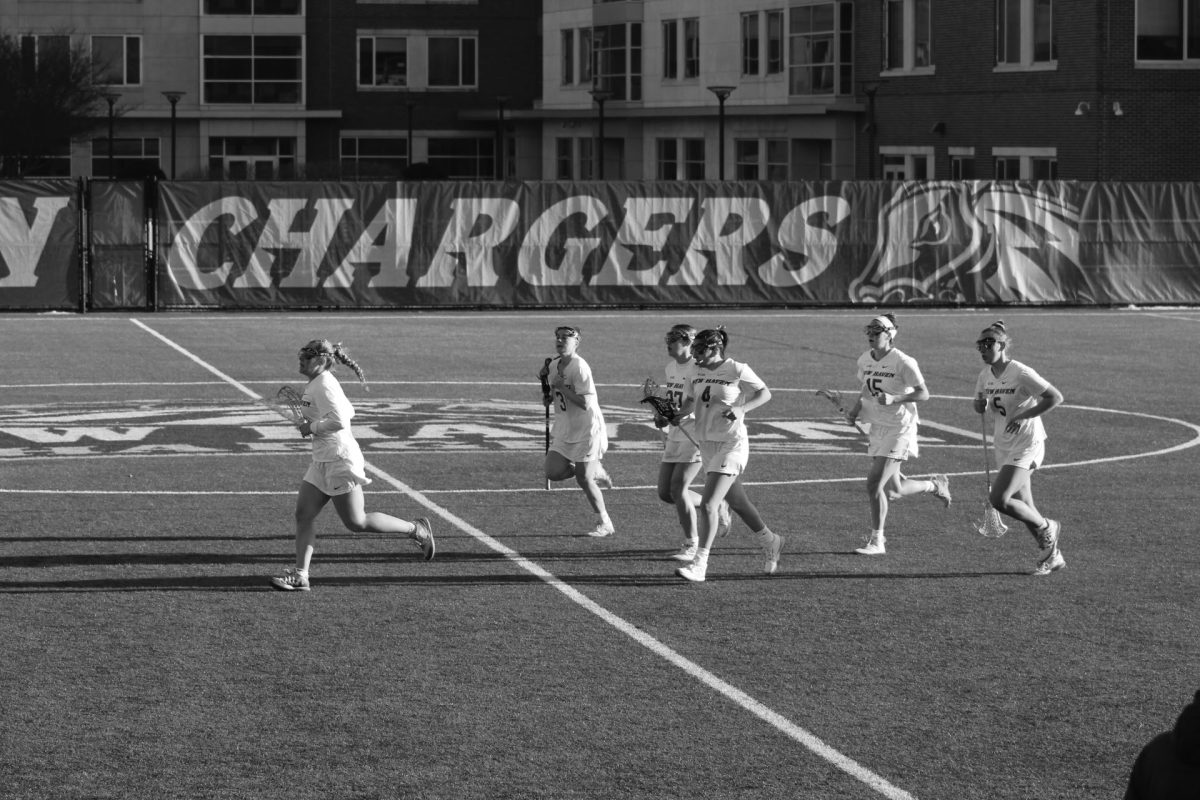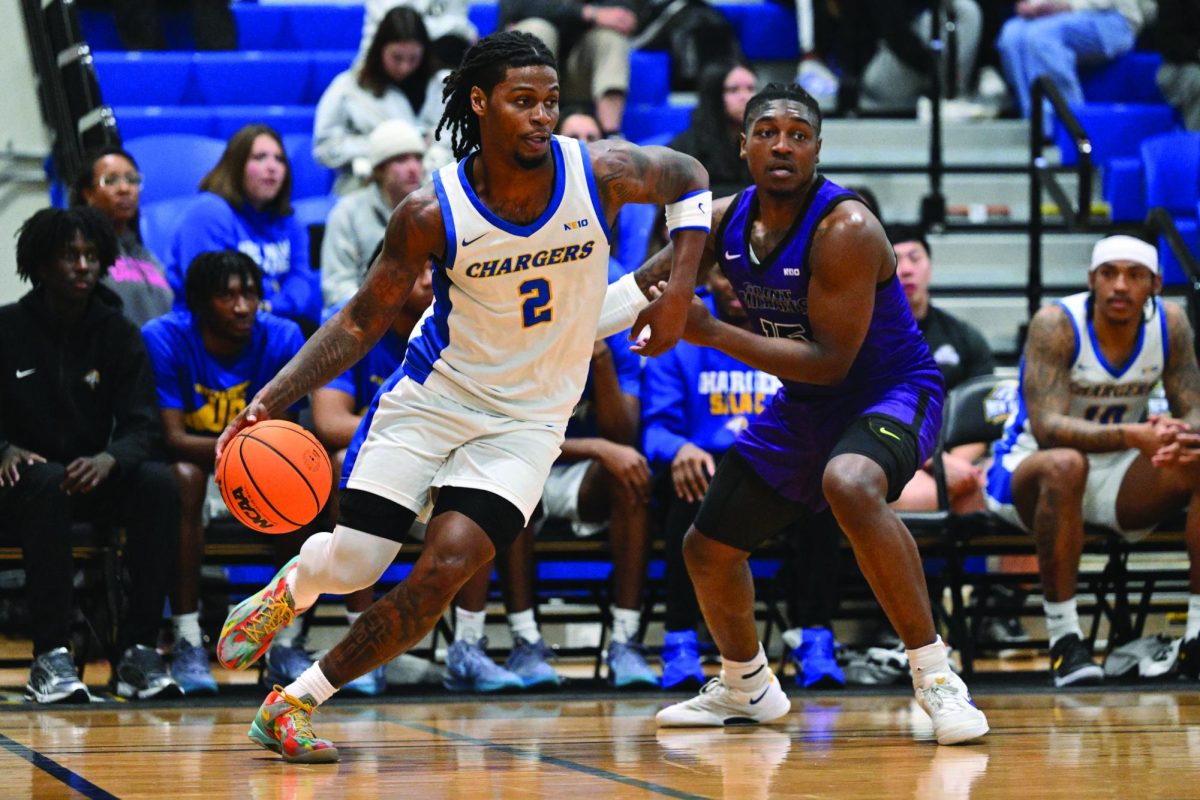As part of the University of New Haven’s 30 Days of Wellness program, the Center for Family Business put on the event titled “How Resilient Are You?” on Tuesday, Nov. 27.
Chairs were arranged in a circle around the Alumni Lounge, with four additional chairs at the center of the set up. A videographer documented the presentation. Paul Sessions, the director of the Center for Family Business came forward to introduce DramaWorks Interactive, a company whose members go into organizations and communities to “make the invisible visible.” “We wanted to give something back to the university,” Sessions said.
DramaWorks Interactive consists of improvisational actors and actresses who act out a variety of scenes on topics most people do not normally think about, including family obligation and financial issues. The audience is presented a storyline; after the scene ends, audience members must choose which character whose personality they would like to change the most. After the character is “changed,” the scenario is replayed with the applied changes to see how the situation can be mediated.
Before the scene took place, however, the DramaWorks members had the audience stand and do warm up exercises to get everyone more comfortable with each other. The first exercise was called “tune in;” during this exercise, students and faculty had to breathe in deeply. Upon exhaling, they had to release noises relating to how they felt that day. Several individuals expressed sighs of relaxation while others grumbled with frustration. This was a way for participants to set aside their emotions and really become observant of what was going on around them. On the second breath, audience members were told to try matching their vocals everyone else. By the third and final breath, most voices were in unison and melodically complimented one another.
The second exercise was associometric; this required participants to take a stand on a particular issue. The topic involved whether the audience believed big changes would take place in the next few years, and if those changes would drastically alter people’s way of life within the country. Two DramaWorks members stood on either side of the Alumni Lounge, one of them representing “no change” and the other “complete change.” Participants were then asked to stand somewhere on the invisible line separating the two opinions; this reflected their position on the level of change they expected in the near future. Many audience members shifted toward the middle of the line, agreeing that some change would occur but not on such a drastic scale.
The audience was finally asked, “What is resilience?” Responses ranged everywhere from strong-willed, to confidence and bravery. While these answers all described resilience, DramaWorks revealed that the true meaning of the term was “bouncing back.” In other words, difficult situations arise in life, and a person’s ability to cope with these challenges and “bounce back” from hardships indicates resiliency.
To exemplify resiliency, DramaWorks presented a scene involving a college student named Olivia, played by Olivia Holcomb, who was very excited about a permaculture class she was taking at the University of New Haven. When she explains this to her parents (played by Timothy Holcomb and Christine Stevens), they immediately attempt to refocus her attention toward her business degree and taking care of the family’s paper-making business. They cannot seem to fathom how a business major could financially support themselves through farming and agriculture. An argument ensues, and Olivia leaves in a rage. She calls her Uncle Erik and Aunt Susan (played by Erik Muten and Susan Daniels, respectively) to vent about her parents and their lack of understanding. Her aunt and uncle show compassion toward Olivia and advise her to calmly address the situation again with her parents. The second confrontation does not end well either, and at this point the scene ends.
Audience members were then separated into groups and provided with a sheet identifying characteristics of a “victim” and a “navigator.” They were asked to select a character from the aforementioned scene that they would like to change, and give suggestions as to how this could be achieved using the characteristics listed on the sheet. The “changed” scene involved Olivia bringing her father to the university and showing him the garden used by the permaculture class in developing new ways of sustainability. After experiencing this with Olivia, her father appears to be more accepting of her involvement with permaculture in conjunction with business.
Fast forward to a year later, and the family’s business is on the verge of collapse. Olivia’s mother and father may have to sell the house, but Olivia wants to have a college graduation party. This second scene again ends in argument and the audience is left to determine which character they would like to change. In the end, the parents and daughter come to a compromise; Uncle Erik and Aunt Susan host the graduation party.
Meanwhile, Olivia uses her knowledge in sustainability and permaculture to bring new ideas to her family’s paper-making company, preventing it from going bankrupt. The changes and obstacles that the family faced show the importance of resiliency in life, and how being able to adapt to change is necessary to move forward and experience new things. Attendees were exposed to real-life situations that they normally would not think about, and the overall performance made these topics relatable to the average student and their families. The message resonating from this presentation was made clear as Muten said, “We’re all authors of the stories of our lives.”













